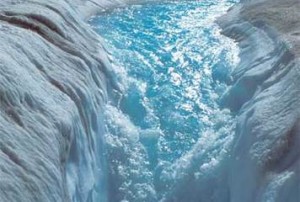Student playing Counterstrike Source
By ario_ via Flickr Creative Commons
Often, when we are asked to describe a “video gamer”, we think of a person lazing around in front of their computer or tv, wasting time playing games as their brain turns to mush. Personally, I enjoy playing video games once in a while, but they were of no value to me other than for entertainment. That was until I took a psychology course at UBC and discovered that people who played action video games often had better spatial attention than the average non-gamer.
What is Spatial Attention?
Imagine that you’re at a restaurant with some friends; people nearby are chatting loudly, waiters and waitresses are hurrying back and forth with plates, cell phones are ringing, background music is playing and yet, you are able to ignore these distractions and focus on the conversation you are having with your friends. This is your spatial attention at work. You are shutting out the unnecessary sensory inputs and only engaging in the information relevant to your conversation.
Gamers vs. Non-Gamers
A study conducted at the University of Rochester by D. Bavelier and associates, found that VGPs (video game players) displayed greater suppression of irrelevant information than NVGPs (non video gamer players). Subjects were asked to press a button to indicate whether a specific shape was present or not in the given visual stimuli (figure 1), which included various shapes and moving distractors. As a result, the researchers concluded that VGPs expressed shorter reaction times, suggesting that they are more effective in filtering out irrelevant information. Furthermore, fMRI brain imaging showed that areas involved in spatial attention were less engaged in VGPs than in NVGPs. In other words, non video game players required more effort to ignore distractions, unlike video game players who seemed to do it almost automatically.
In an attempt to identify differences in cognitive performance between VGPs and NVGPs, researchers assessed numerous individuals in their attention, memory and executive control skills. Overall, it was found that experienced gamers could track faster moving objects, posessed better visual short term memory, were quicker at switching between tasks and were more effective in mentally rotating objects than non-gamers. Interestingly enough, the researchers also suggest that non-gamers could potentially improve their cognitive skills with increased video game experience.
Have 18 minutes to spare? (probably not..) But for those who are really interested, here is a video of cognitive researcher Daphne Bavelier giving a talk about the effect of video games on our brains. She addresses topics such as eyesight, attention, multi-tasking and much more. I found this quite interesting.

Although video game players overall display better cognitive performance than non-video game players, it does not mean you should spend most of your time now playing video games in place of studying or other important tasks. However, the next time you decide to take a study break, consider playing an action game. With the right dose, you can de-stress and potentially improve your spatial attention at the same time!
– Grace Lam





